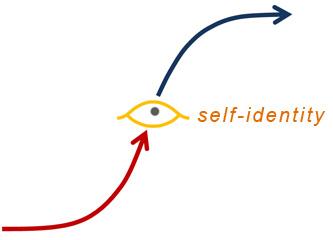Phil Henshaw
way uptown
Other/Almost
I'm a scientist who studies the revolutions in natural systems that nature uses to create everything, how a "calm before a storm" becomes a "viral event" that then "graduates" from one level of organization to another... “disrupting and remaking” its environmental relations. The Egyptian revolution is at the stage immediately following the "viral event" of breaking with the past, and now as a “new culture” needing to grope around for what to put together.
The study of similar cultural experiences, like the dramatic collapse of the Soviet Union, or the similar but "silent" collapse of the Crack Culture in NYC from 1990-95, I did a study of the latter that might be of interest: http://www.synapse9.com/cw/crimewave_nys2.htm. You don’t need to use a mathematical analysis, but just observe how a whole environment is changing around any kind of viral cultural or ecological process. Any viral event you see is likely some new form of culture breaking from its constraints. Studying the ones involving your own life gives you a real appreciation for how new cultures can emerge with explosive formation and collapse processes of different things at the same time. There are as many kinds of emergence as there are of ways for new forms of culture to mature.
Once new forms of culture emerge from their initial constraints the important things are to 1) try to grasp what the common elements essential to it are, to establish its sense of identity and 2) then be active in learning how to integrate with its environment by being openly exploratory, inquisitive and patient.
Never losing sight of the principles not yet stated, but that permeate the new culture is valuable. Because the reality is different from the perception, it’s important for perception to remain as open to and observant of the reality to not result in being confused as to what the new form is. For a "new born" culture that has just burst onto the scene, the first experience is being “helpless”. It really doesn't know anything at all, like a fragile seedling, or nubie in any field, or your first day on a new job or school. Changes of form all come with that kind of "first day experience" of graduating to a new world and feeling completely lost in it at first, because new systems that have just emerged haven’t discovered their connections yet.
If you've ever watched how ants behave when they first emerge from the nest, for example, they look more lost than any kind of living thing you've ever seen...! You normally think of ants as seeming to really know what they’re doing, but as newbies the difference is remarkably clear. Every new start then, benefits from not rushing that, because it is a learning process and not a program, and from nourishing the learning process in exploratory ways, to keep your identity and find the complementary roles that will knit things together.
The diagram shows the basic sequence, a viral process of emerging culture reaching a stage of coalescing on a "self-identity",(not a "self-awareness" except for thought processes, of course) and begun the process of maturing and integrating with its environment.
